This year’s APH Annual Meeting, on November 19, is themed 'Impact in Public Health: How to really connect with society’. The APH research institute is committed to achieving health for all, powered by science. As researchers, we have the potential to make a significant impact on public health. This day offers an opportunity to get inspired and exchange experiences on how to truly connect with society.
The plenary morning session will start with an engaging, interactive opening entitled 'The meaning of impact' led by playful philosopher dr. Frank Kupper, followed by a welcome from the APH director. Following this, two keynote speakers will present different perspectives on impact in public health. Prof. dr. Sander Begeer and Vincent van Loenen (ambassador Netherlands Autism Register) will provide a duo-presentation, entitled 'Nothing about us without us: Co-creation in autism research'. Prof. dr. Julia van Weert will present about communication strategies. Her keynote presentation is entitled: 'Bridging the gap: Using health communication strategies for real societal impact'. The plenary morning session will conclude with two impactful pitches, showcasing APH’s best 'impact' practices, delivered by APH midcareer researchers dr. Bibian van der Voorn and dr. Vincent van Vugt.
During lunch break, poster presentations will be presented by our junior and midcareer researchers, and you’ll have the opportunity to participate in a stakeholder analysis workshop led by our impact developer, Diane Schöller. In the afternoon, parallel theme sessions will be held, organized in collaboration with our research programs. The day will also feature the APH Impact Booster Grant award and the APH Poster award ceremony. We will close the event with an engaging and entertaining closing, followed by drinks and appetizers.
Speakers
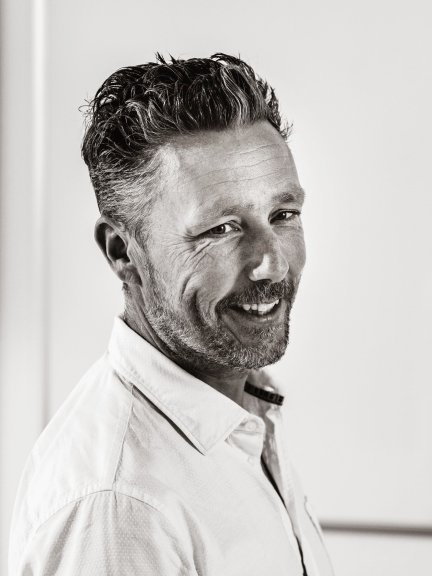
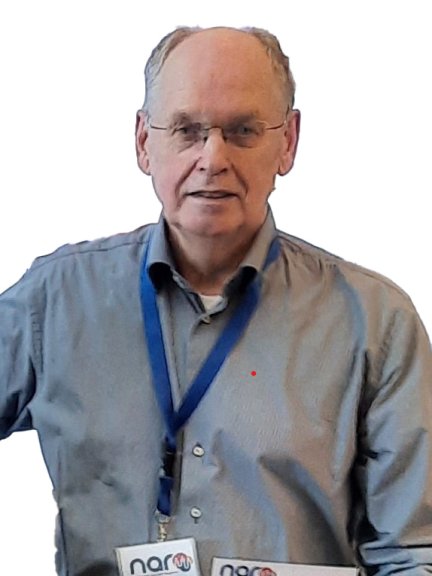
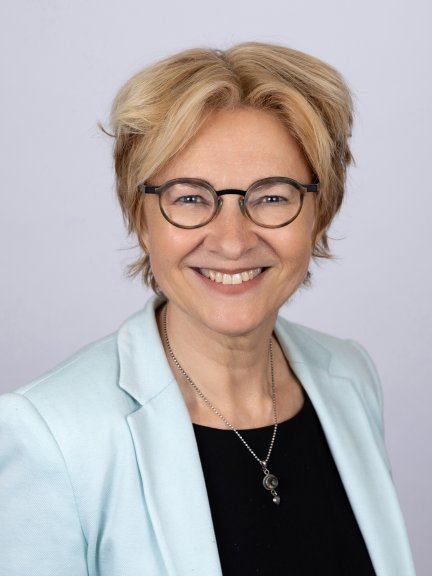
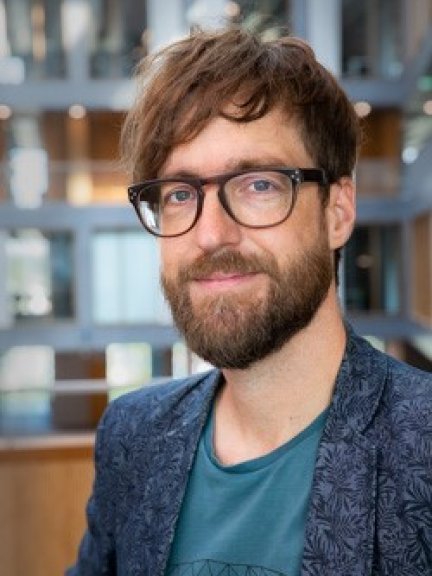
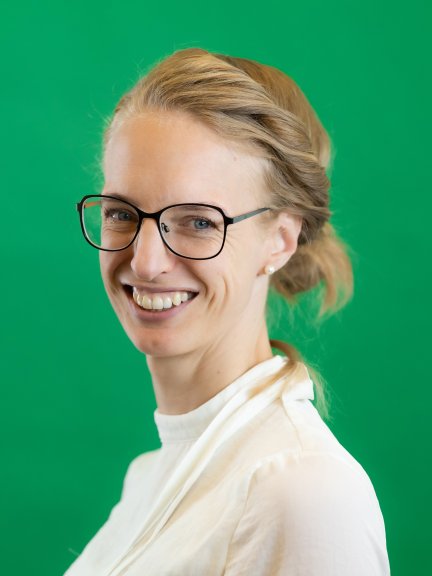
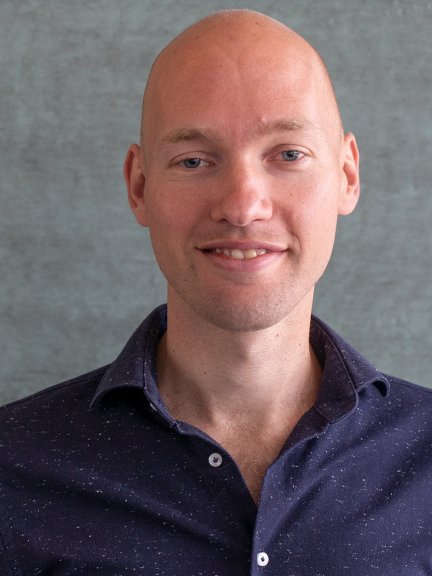
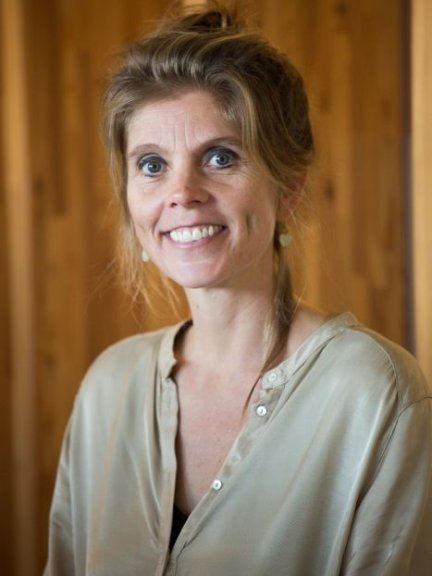
Plenary morning session
(9:30-12:20 hrs)
The meaning of impact
By dr. Frank Kupper
Impact is on the rise. Scientific research is no longer expected to be excellent… only. We also want our research to be relevant... And when is our research relevant? When we are making an impact… There are so many ideas about impact and why it matters. So, what do you mean when you talk about "making an impact with research"? And why should we care? Impact refers to the effects of research in the real world. But, is it always ”the real world” that needs to change? This playful performance lecture debunks a few common myths about the impact of research. If you really want to connect to society, be careful your assumptions don’t get in the way. Only when we accept our ignorance, open dialogue becomes possible.
Bio: Frank Kupper is a researcher, facilitator and theatre maker at the boundary between science and society. With his company Mens in de Maak he combines improvisational and participatory theatre with playful reflection to create conversations about science that matter. He also provides advice on public engagement, dialogue and creative deliberation. As an associate professor at Vrije Universiteit Amsterdam, he leads the Science in Dialogue network that aims to bring VU researchers into dialogue with society. His mission is to create more openness and dialogue in the world of science.
Nothing about us without us: Co-creation in autism research
By prof. dr. Sander Begeer and Vincent van Loenen
In recent years, collaboration with autistic individuals has become an essential aspect of autism research, with some funding programs now mandating co-creation. This marks a significant shift from past practices, where such collaboration was rare. While autism research has made progress in this area, co-creation remains in its early stages in many other fields. In this presentation, a non-autistic researcher and an autistic ambassador will discuss the transformative benefits and unique rewards of integrating the lived experiences of autistic individuals into academic research.
Bio: Sander Begeer is Professor of Diversity and Autism at the Vrije Universiteit Amsterdam. His research is focused on understanding differences between autistic and non-autistic individuals (positive and negative), to increase our understanding of both conditions. He (co)founded and direct the Netherlands Autism Register (NAR), a large longitudinal cohort of autistic individuals. Their aim is to increase mutual understanding and improve support where needed. Vincent van Loenen is ambassador of the Netherlands Autism Register.
Bridging the gap: Using health communication strategies for societal impact
By prof. dr. Julia van Weert
To make a real impact on society, interdisciplinary research is essential, and health communication can play a key role in this. This keynote will explore how health communication can drive meaningful change, illustrated through real-life studies and innovative approaches. Examples include integrating decision support tools into GP systems to reduce fall risks among older adults and using Ecological Momentary Assessment (EMA) apps to identify behavior patterns and support addiction recovery in adolescents. We’ll examine how theory and empirical evidence inform practice, focusing on reaching less well-represented people and enhancing equity. Additionally, we’ll tackle the provocative question: Is open science a threat or an opportunity? A challenge with risks or a catalyst for greater impact? Join us to discover new strategies for leveraging health communication to achieve societal difference.
Bio: Julia van Weert is Professor of Health Communication and Head of the Department of Communication Science at the University of Amsterdam. She is founding director of the Amsterdam Center for Health Communication/ACHC, co-lead health of the national Gravitation program AlgoSoc (Public Values in the Algorithmic Society), co-lead of the ELSA Lab AI for Health Equity and board member of the UvA’s Research Priority Urban Mental Health. Her research focuses on effective health communication, in particular for underprivileged and/or less well-represented people. She has a special interest in digital (AI-based) interventions like eHealth and mHealth and their impact on health outcomes and well-being.
Care for Obesity; demand-driven, user-friendly, appropriate and available integrated care for children with overweight and obesity.
By Dr. Bibian van der Voorn
Care for Obesity is a project that seamlessly integrates research and valorization efforts to improve care for children with overweight and obesity. Based in the Department of Health Science at Vrije Universiteit, the research team facilitates the national implementation of integrated care for these children by conducting research and developing practical tools and materials. Bibian will present on these tools, which includes the national model for integrated care, a web tool for assessing health-related quality of life to promote patient-reported outcome measures, and e-learning, workshop, and folders that equip professionals to have sensitive conversations about weight and lifestyle with children and parents. These efforts have resulted in numerous transdisciplinary projects that bridge the gap between research, policy, and practice.
Bio: Dr. Bibian van der Voorn is a leader in pediatric obesity, known for her clinical translational research and interdisciplinary collaborations. After earning her PhD in 2018, she became a medical doctor and postdoctoral researcher at the European Collaborating Centre for Obesity Management (EASO) in Erasmus Medical Center, Rotterdam. In 2021, she joined the project Care for Obesity at the department of Health Science, Vrije Universiteit Amsterdam to deepen her expertise in policymaking and integrated care. From 2022, she leads the long-running Care for Obesity project, which bridges research, policy, and practice by promoting the use of both practice-based evidence and evidence-based practice. By 2023, she was appointed assistant professor in childhood obesity.
Reaching societal impact: The journey to bring digital care for dizziness to general practice
By Dr. Vincent van Vugt
Achieving impact in society with science can be challenging. In this talk Vincent will talk about Vertigo Training, an evidence-based digital treatment he and his team developed to treat chronic dizziness in general practice. He will discuss the steps that they took, the challenges they faced and the lessons learned. The goal is to inspire other researchers to focus their academic work on societal impact, even though this is not always the easiest route to take….
Bio: Dr. Vincent van Vugt is a general practitioner, assistant professor and epidemiologist. From 2016 onward, he studied dizziness and eHealth in general practice, resulting in a dissertation which was awarded the distinction cum laude in December 2020. He has since expanded his scope to digital healthcare in general practice for all chronic diseases, and is currently working on a VENI project to investigate the best way to design blended care interventions. His main research focus is on keeping primary care sustainable. Prevalence of chronic disease is rising, while workload in primary care is already alarmingly high. By developing, testing and implementing novel interventions for chronic conditions such as dizziness, he aims to deliver easily accessible solutions for patients and general practitioners.
Walking lunch break
(12:20-13:50 hrs)
During the walking lunch break you can network with fellow APH researchers, visit the poster presentations and attend a stakeholder analysis workshop led by our impact developer, Diane Schöller.
Workshop stakeholder analysis
(12:50-13:50 hrs)
Making a stakeholders analysis: an important step in creating impact
By Diane Schöller & Eline van Dulmen
Amsterdam UMC has created the 6-Step Impact model for her researchers. This model describes how to create societal impact in healthcare and public health. One of the important steps is: test and adjust with stakeholders. What is a stakeholder? Who are they for your specific research project or idea to create impact? And why and when should you involve them and how? During this workshop we will work together on making hands-on stakeholder analysis, come and join us!
No subscription needed, just visit the 'Creating impact' room on time, and participate!
APH Poster presentations
(12:50-13:50 hrs)
PhD candidates, junior researchers and postdocs are invited to present a poster of their research project at the Annual Meeting. Visit the poster presentations and get to know APH's research projects better!
Submission procedure
Submit an abstract before Monday October 14 via the form below. Fill in this form and send it to aph@amsterdamumc.nl. All submitted abstracts will be reviewed by the program leaders on scientific and methodological quality, scientific and societal relevance, innovative character and suitability to APH (both overall and to your research program), and on the data available to be presented.
Ultimately October 30 you will be informed whether your abstract is accepted and you can present a poster during the poster sessions. The best posters compete for the APH Poster Award 2024! The award comes with a money prize in vouchers:
- Winner: € 500
- Second place: € 300
- Third place: € 200
APH Impact Booster Grant
APH is offering 6 APH Impact Booster Grants with a value of maximum € 5.000 to APH researchers. The booster aims to strengthen the impact of research conducted within APH. To compete for this booster grant, you have to submit an eligible booster plan and attend the Annual Meeting. At the end of the meeting, 6 winners will be selected during the plenary closing ceremony based on random selection. More about the APH Impact Booster Grant 2024 can be found on this page.
Parallel theme sessions
(14:00-15:30 hrs)
After lunch and the poster presentation sessions, parallel theme sessions will be held hosted by the APH research programs.
(1) Ethics work of participation in research and participatory research
Organized by Personalized Medicine, Methodology and Health Behaviors & Chronic Diseases
The maximum of participants has been reached. Session is fully booked.
Collaborating with citizens in research contributes to its relevance, credibility and impact. Academics mostly engage with citizens in studies via advisory boards or as co-investigators. Several grant providers encourage this nowadays. However, citizens and advocates increasingly raise critical voices about these collaborations. Expectations and interests between scholars and citizens differ, and systems of universities and grant providers do not always fit participation. In short, despite this methodology's positive aspects, partnerships are not always 'impactful' or 'good' for all involved. Reflections on power dynamics can help.
This session delves into the theory and practice of 'ethics work in everyday ethical issues in participation', an important topic in our academic and societal landscape. We start with an introduction of 'ethics work in participation' by dr. Barbara Groot-Sluijsmans (VU Amsterdam, Health Sciences). Following this, we will discuss three practical examples of ethical issues and ethics work from the contexts of youth co-creation of socially- and physically- healthy urban public spaces by Kunshan Goh (Amsterdam UMC, POH) co-creation in ethnically-diverse communities by Bryn Hummel (Amsterdam UMC, POH) and participatory research with trans and gender diverse clients by dr. Nessa Millet (Amsterdam UMC, Medical Psychology). We will finish the session with dialogue about 'ethics work' in subgroups, and a plenary exchange of tips and tricks.
(2) Citizen science & health: Collaboration of research and societal initiatives promoting mental health
Organized by Mental Health
The maximum of participants has been reached. Session is fully booked.
Learn more about citizen science & join the session of the APH Mental Health research program! This session is led by Gaston Remmers (Director ‘Mijn Data Onze Gezondheid’, Coordinator ‘Zelfonderzoek Netwerk Nederland’ and Board member European Citizen Science Association).
In a plenary introduction we learn more about citizen science. What is citizen science? How can it enhance your research in the (mental) health domain? And what is in there for patients and citizens? The second part of the session focuses on an interactive discussion on citizen science in relation to health, research, researchers, data and ethics. What could citizen science add to your research and mean for society? Finally, Gaston will present projects showing how citizens and science can work together. Learn from practical examples, discuss with your fellow researchers and dive into the field of citizen science!
This session has a capacity of up to 40 participants.
(3) Creating impact: Co-creation, societal impact, and policy change
Organized by Aging & Later Life and Global Health
We present two cases: (i) From outside to inside: Staff shortages challenge care systems, not only in the Netherlands but also abroad. Researchers from Global Health are involved in “family nursing in Bangladesh hospitals”. Family members are taught to perform care activities usually done by trained staff. How to measure impact of such co-created interventions?
(ii) From inside to outside: Started as local research project over 30 years ago, meetings centers for persons with dementia and their informal caregivers have disseminated nationally and internationally. How did such a complex intervention become success full? What are the lessons learned? Founding mothers share their experiences.
The following speakers will be featured in this session: dr. Janet MacNeil-Vroomen, prof. dr. Constance Schultsz, prof. dr. Hein van Hout, dr. Stije Leopold, prof. dr. Michele van Vugt, Jim Determeijer, dr. Franka Meiland and prof. dr. Rose Marie Droes
(4) Boost your research impact: Harnessing social media effectively
Organized by Quality of Care
The maximum of participants has been reached. Session is fully booked.
Join us for an interactive workshop designed to empower APH researchers with the skills to effectively share their research through social media. Erik Michels, a PhD candidate in Internal Medicine, will kick off the session by discussing his experience with the Amsterdam UMC 'Facts and Fables' project, which uses TikTok videos to debunk medical misinformation. He will share valuable tips and tricks for effective digital communication for research purposes.
In the second part of the session, Erik, together with QoC members Oscar Brito Fernandes and Siham Azahaf, will guide researchers in creating their own research-oriented TikTok videos using provided props. This practical session will help attendees make their first video, enhancing their communication skills and learning to make a real impact with their research through social media. Dare to have a fun time while boosting your research dissemination capabilities!
This session has a capacity of up to 45 participants.
(5) Responsible AI in Public Health
Organized by Digital Health and Societal Participation & Health
Join us during an engaging parallel session on responsible AI, hosted by APH Digital Health and APH Societal Participation & Health. This interactive session will explore how AI can ethically and effectively improve public health outcomes. Our speakers will present about thrustworthy AI, legal issues associated with AI and on application of AI in occupational health and we will end with a discussion on responsible AI. Engage with fellow APH researchers to ensure AI innovations benefit society responsibly.
Plenary afternoon session
(15:50-16:30 hrs)
APH Booster Grant and APH Poster Award 2024
The plenary closing session will begin with the APH Booster Grant 2024 award ceremony, where proposals from APH researchers aimed at furthering APH’s goals will be selected by lottery. This will be followed by the announcement of the winners of the APH Poster Award 2024.
ZonMw Parel
Prof. dr. Arfan Ikram (board member of ZonMw) will award the ZonMw Parel to one of APH research projects. The ZonMW Parel will be awarded to an outstanding research project with an extraordinary and useful result, with a successful collaboration between relevant parties and/or which is achieving scientific and/or societal impact.
Entertaining closing
The session will conclude with an entertaining and energetic closing performance, with the theme 'Creating impact together'. Afterwards, we invite you to stay for drinks and appetizers until around 18:00 hrs.
It promises to be an informative and enjoyable day, highlighting a growing field of research with plenty of opportunities to connect with your fellow APH researchers!
Registration is closed.

